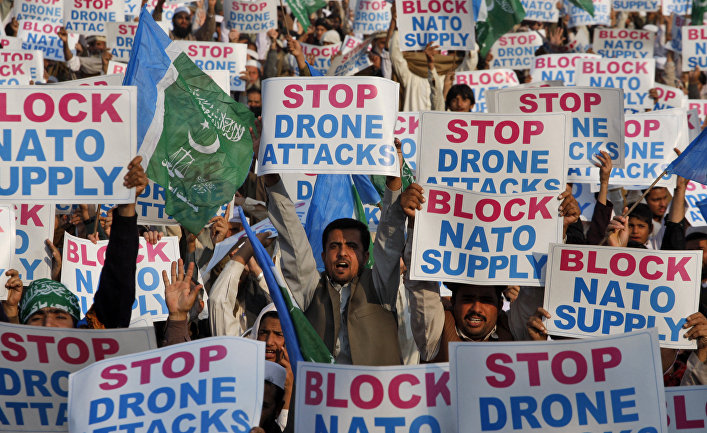Brandon Bryant, a former US Air Force drone sensor operator, described his experience conducting fatal aerial strikes as simple as "a video game” during an interview in 2013. Now the killer drones of the US military are more frequently seen in the South China Sea. AFP, citing Wall Street Journal, reported that the Pentagon decided to further enlarge the deployment of unmanned aerial vehicle (UAV) in the upcoming four years, and one of the target areas is the South China Sea.
At the beginning of 2013, the massive civilian casualties caused by the US Predator drones sparked fierce controversy. US President Barack Obama gave the authority to initiate drone strikes against suspected terrorists in Afghanistan, Pakistan, Yemen, and other countries. While the US officials emphasize their effectiveness in fighting terrorism, the increasing number of civilian deaths is turning the public against the combat tool. According to The Huffington Post, the statistics in early 2014 show that, only in Pakistan, drone attacks killed at least 416 innocent civilians, including 168 to 200 children.
It is reported that the expanding deployment of drones is to enhance US's military reconnaissance and combat capability in target areas, and provide support to the operations in the South China Sea, Ukraine, Iran, North Africa, Syria and other areas. This is America’s first large-scale expansion of its UVA capabilities since 2011.
Reconnaissance conducted by US drones over the South China Sea is not new. In May 2015, The Washington Free Beacon reported, citing US military officials, the United States sent Global Hawk long-range surveillance drones to spy over the Nansha Islands in China. And China’s Ministry of Foreign Affairs expressed dissatisfaction about America’s “little tricks” over the South China Sea. Foreign Ministry spokesperson Hone Lei said China's position on the South China Sea is clear and consistent, and China’s attitude has been restrained and responsible. China has legitimate rights to adopt all measures in this area. No one should make irresponsible comments on this. Hong Lei urged the US to take a "rational and fair attitude" and do more to contribute to the healthy and stable growth of the relationship between the two countries.






